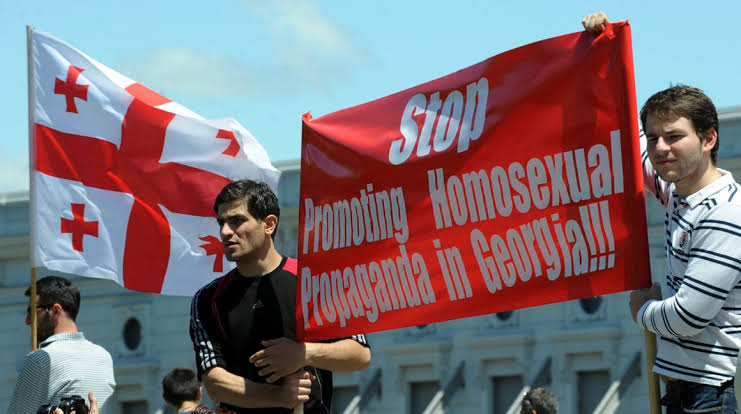In a move that has sparked international concern, Georgia’s Parliament Speaker, Shalva Papuashvili, has signed into law a contentious bill that restricts the rights of LGBTQ individuals.
This development comes despite warnings from the European Union and a day after President Salome Zurabishvili refused to sign the bill due to its contentious nature.
The newly signed law, dubbed the “Law on Family Values and the Protection of Minors,” bears striking similarities to Russia’s infamous “gay propaganda” law. It prohibits gender reassignment and nullifies same-sex marriages performed within Georgia or abroad ¹.
Papuashvili defended the law on Facebook, stating, “In conformity with the constitution, I signed today the law ‘on family values and the protection of minors’, which Salome Zurabishvili didn’t sign.” He emphasized that the measure is grounded in “common sense, historical experience, and centuries-old Christian, Georgian, and European values” rather than “changeable ideas and ideologies.”
However, human rights organizations and Western nations have condemned the law as discriminatory, arguing that it fosters a perilous environment for LGBTQ individuals. The law’s passage follows the tragic stabbing death of a prominent Georgian transgender woman last month, which occurred amidst the bill’s promotion.
Georgia’s ruling Georgian Dream party pushed the bill through parliament last month, despite opposition boycotts. This has escalated tensions ahead of the crucial October 26 parliamentary elections. Critics accuse the Georgian Dream party of aligning itself with Kremlin interests, jeopardizing Georgia’s bid for EU membership.
– The European Union has expressed concerns over the law’s implications for Georgia’s EU membership bid.
– Human rights groups have denounced the law as discriminatory and harmful to LGBTQ individuals.
*Context*
– Georgia has struggled with LGBTQ rights, despite some progress since the start of the 21st century.
– The country’s constitution now defines marriage as a union between a man and a woman, following a 2017 constitutional reform.


